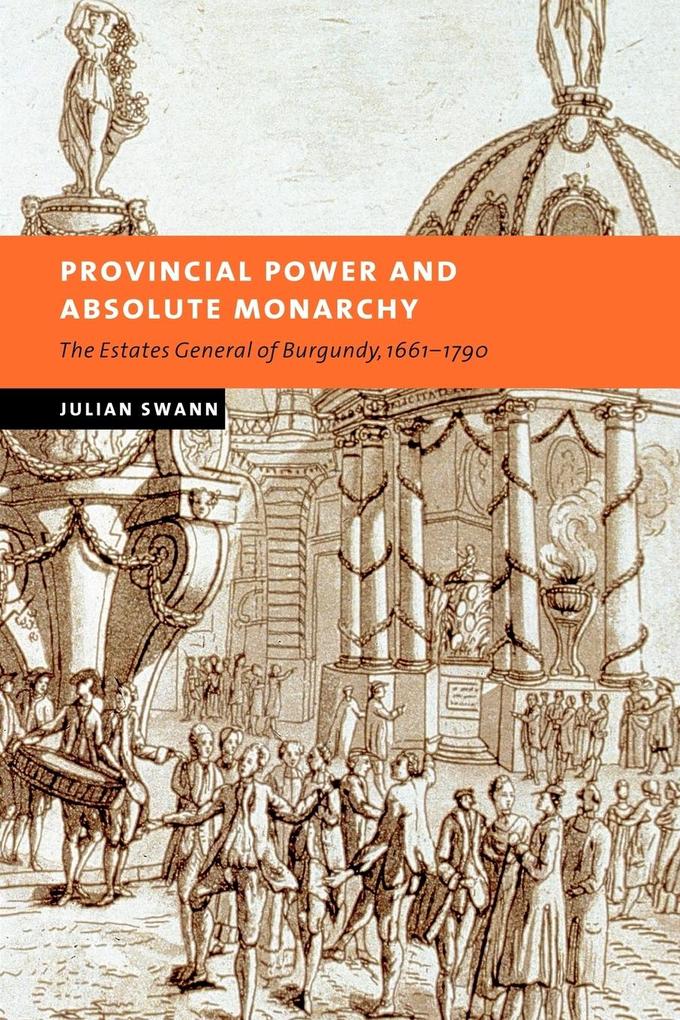
Zustellung: Mi, 06.11. - Sa, 09.11.
Versand in 3 Tagen
VersandkostenfreiBestellen & in Filiale abholen:
This is the first book in English to study the history of the Estates General of Burgundy during the classic period of absolute monarchy. Although not a representative institution in any modern sense, the Estates were constantly engaged in a process of bargaining with the French crown, and this book examines that relationship under the Ancien Régime. Julian Swann analyses the organization, membership and powers of the Estates and explores their administration, their struggles for power with rival institutions and their relationship with the crown and with the Burgundian people. The Estates proved remarkably resilient when confronted by the challenges posed by the Bourbon monarchy, and by the reign of Louis XVI they were seemingly more powerful than ever. However the desire to protect their privileges and to extend their authority had not been accompanied by an attempt to forge a meaningful relationship with the people they claimed to serve.
Inhaltsverzeichnis
List of illustrations; List of figures; List of appendices; List of map; Preface; List of abbreviations; Map: the duchy of Burgundy in the eighteenth century; 1. Historians, absolute monarchy and the provincial estates; 2. Ancien régime Burgundy; 3. The Estates General of Burgundy; 4. Nosseigneurs les élus and the officers of the Estates; 5. The provincial administration: authority and enforcement; 6. 'It's raining taxes': paying for the Sun King, 1661-1715; 7. Provincial administration in an age of iron, 1661-1715; 8. The limits of absolutism: crown, governor and the Estates in the eighteenth century; 9. Provincial rivalries: the Estates and the Parlement of Dijon in the eighteenth century; 10. Tax, borrow and lend: crown, Estates and finance, 1715-89; 11. An enlightened administration?; 12. The coming of the French revolution in Burgundy, 1787-9; Conclusion; Appendices; Bibliography; Index.
Produktdetails
Erscheinungsdatum
23. Februar 2007
Sprache
englisch
Seitenanzahl
480
Autor/Autorin
Julian Swann
Verlag/Hersteller
Produktart
kartoniert
Gewicht
773 g
Größe (L/B/H)
229/152/28 mm
Sonstiges
Paperback
ISBN
9780521036672
Entdecken Sie mehr
Pressestimmen
'Based on careful archival research, gracefully written, and cogently argued, Swann's book is a welcome addition to the literature on the role of institutions in the old regime and the coming of the French Revolution. Those who wish to gain a better understanding of the often obscure mechanisms of power in eighteenth-century France will find this book well worth reading.' European History Quarterly
Bewertungen
0 Bewertungen
Es wurden noch keine Bewertungen abgegeben. Schreiben Sie die erste Bewertung zu "Provincial Power and Absolute Monarchy" und helfen Sie damit anderen bei der Kaufentscheidung.









